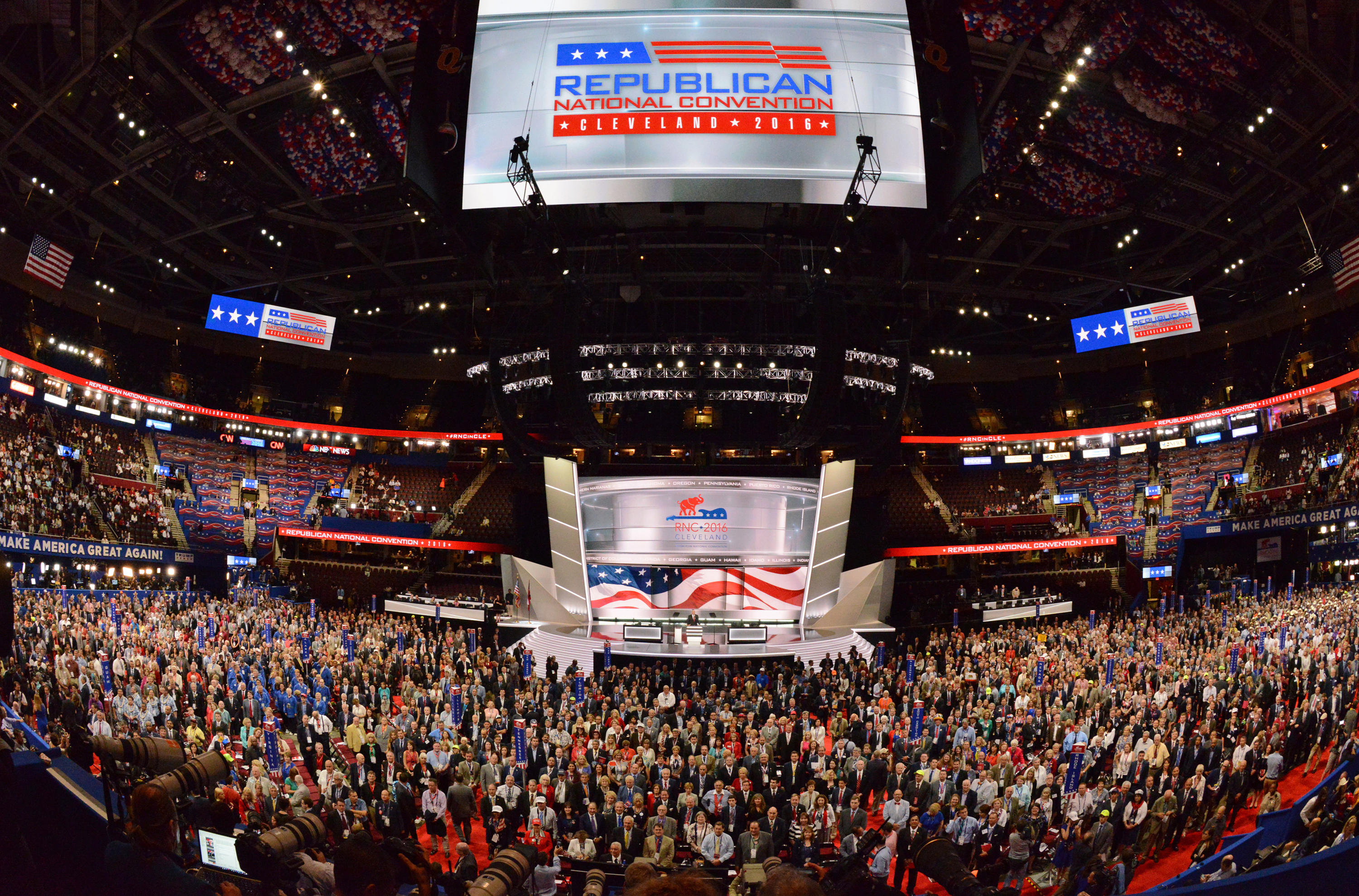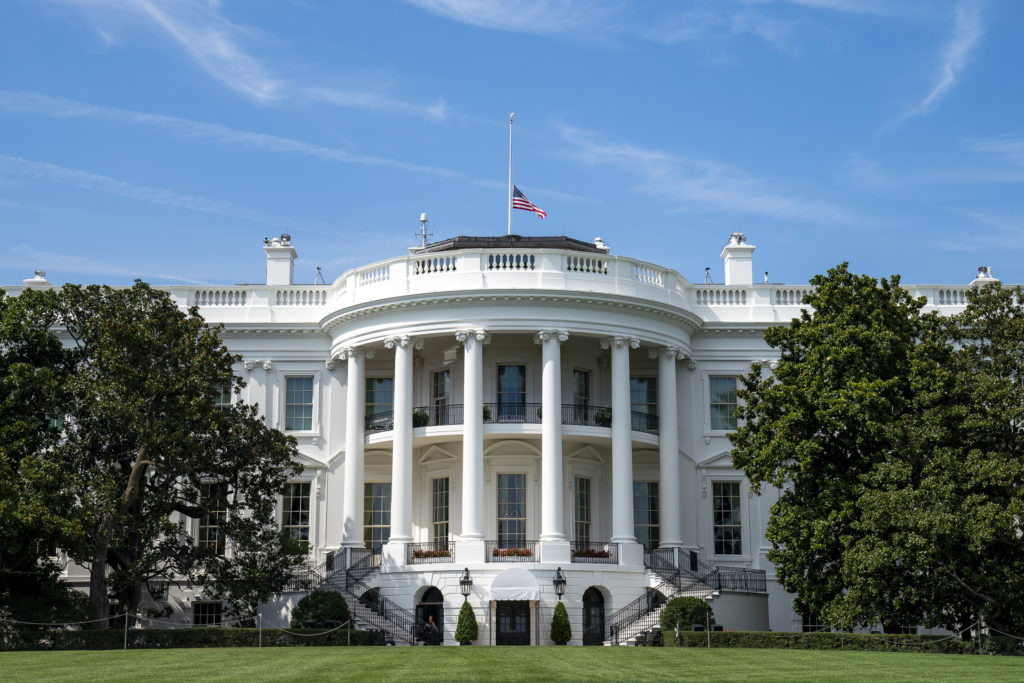What Does the 2024 RNC Platform Say About National Security?

Published by The Lawfare Institute
in Cooperation With

I remain serenely unrepentant of my commitment since 2016 that I will neither vote nor work for Donald Trump, because this Republican genuinely believes he’s a danger to constitutional governance in our country. But there’s no denying he’s a cannily successful politician. People turn out by the thousands for his rallies; some for the excitement and transgressiveness, some to support his policies, some because they genuinely believe our country is changing into something unrecognizable or unwelcome to them. Trump uses those rallies to test his messages and garner free media coverage. The barrage of outrages camouflages or simply drowns changes to his positions. He has most leading Republican politicians unashamed to recant both personal criticism and policy stances, cloying for his endorsement. He stocks institutions like the Republican National Committee with apparatchiks. At his instigation, in 2020 the RNC didn’t even produce a platform: Party loyalists were content that whatever policies the nominee adopted would be the party line.
The just-completed 2024 RNC platform bears the imprimatur of Trump. The platform change on abortion is getting lots of attention, but there are other consequential departures from the 2016 platform and prior Republican administration policies, as well. It accuses “our politicians [of selling] our jobs and livelihoods to the highest bidders overseas with unfair Trade Deals and a blind faith in the siren song of globalism.” It accuses leaders of both political parties of doing “everything in their power to destroy our Country” and criticizes “decades of failed leadership.”
The platform also reflects Trump’s style, with capitalized words sprinkled throughout, the 20 policy statements shouted in all capitals, and a dedication to “the Forgotten Men and Women of America.” It trumpets the words “make America great again” repeatedly. There is as yet no evidence of the ability of this platform, or effort by the candidate, to deliver on the final promise to “UNITE OUR COUNTRY.”
Substantively, the platform advocates “sensible Border Security and Immigration Policy,” by which it means completing the border wall, and a commitment to “deport the millions of illegal Migrants who Joe Biden has deliberately encouraged to invade our Country.”
Its economic policy is summarized as “destroy Inflation and rapidly bring down prices, build the Greatest Economy in History, revive our Defense Industrial Base, fuel Emerging Industries, and establish the United States as the Manufacturing Superpower of the World. We will DRILL, BABY, DRILL and we will become Energy Independent, and even Dominant again.” Which sounds pretty standard for a conservative politician; it is less the goals and more the means described in the platform that prior Republican administrations would have considered self-defeating economic policies: baseline tariffs, draconian immigration restrictions, preferential treatment of U.S. businesses, Bitcoin mining, creation of a manufacturing industry in near-earth orbit, protection of domestic manufacturing, revocation of China’s most-favored nation trading status, strengthening of Buy American provisions, and a shift to domestic industries for supply chains.
Defense policy is the least departure from traditional Republicanism. The platform argues for a strong military used sparingly and then only in national interests. It acknowledges the inherent connection between economic and military power: “War breeds Inflation while geopolitical stability brings price stability.” It gets more specific and jejune in the 20 promises, which commit to “PREVENT WORLD WAR THREE, RESTORE PEACE IN EUROPE AND IN THE MIDDLE EAST, AND BUILD A GREAT IRON DOME MISSILE DEFENSE SHIELD OVER OUR ENTIRE COUNTRY -- ALL MADE IN AMERICA.”
Military missions are focused primarily on domestic issues:
We will use all resources needed to stop the Invasion—including moving thousands of Troops currently stationed overseas to our own Southern Border. We will deploy the U.S. Navy to impose a full Fentanyl Blockade on the waters of our Region—boarding and inspecting ships to look for fentanyl and fentanyl precursors.
The Pentagon will doubtless blanch at the specific deployment commitments, since the National Guard chief has recently testified that border missions have produced no military benefit.
The platform and its specific promises commit to no cuts to Social Security and Medicare, yet it will be impossible to meet the commitment to strengthen the military without entitlement reform or running deficits on the order of $30 trillion over a decade.
It also would reinstate the Trump administration’s travel ban and deport unaccompanied child migrants, deport suspected gang members and drug dealers, and “keep foreign Christian-hating Communists, Marxists, and Socialists out of America.”
Both while campaigning in 2016 and in office in 2017-2021, Trump was unbound by party commitment—or even by policy and constitutional requirements that outline and constrain a president. The 2016 RNC platform was largely in line with traditional Republican policies, with the exception of a Trump-supported intervention to nix lethal support to Ukraine (yet Secretary of Defense James Mattis did send lethal aid to Ukraine in 2017, something Trump now takes credit for). Trump’s policies in office were unaffected by the guidelines outlined in his 2017 National Security Strategy. President Trump was not even willing to be bound by the constitutional separation of powers, attempting to get the Department of Defense to defy congressional appropriations. Most recently, Trump disavowed the Heritage Foundation’s Project 2025, even though 140 people who’ve worked for him are involved with it.
Which is what makes it so curious that Trump and his campaign are working to revamp the RNC platform in 2024. If it mattered so little that 2016’s was largely untouched and what did change was not honored in policy, that signature policy documents while in office were not reliable guides to policy decisions, and that campaigning for reelection a platform was considered unimportant, why risk alienating the Republican base, which does seem to care deeply about the policy statements in the RNC platform?
The crass political answer would be that the Trump campaign knows the base has nowhere else to go. It’s a platform designed to advance signature Trump policies but give just enough acknowledgement of traditional conservatism to hopefully lure voters he needs beyond the base. Justifiably taking credit for the Supreme Court overturning Roe v. Wade while supporting state abortion legislation might blunt the success of Democratic emphasis on the issue. And he can afford to lose some voters who will stay home rather than vote because they’ve accurately calculated prospective Democratic turnout for the election.
Moreover, he needs voters who supported Gov. Nikki Haley (R-S.C.) in the primaries, and political independents beyond the Republican constituency, to be confident of election. So, the moderation on abortion evident in the platform, the discipline evident in Trump’s debate performance, and the belated invitation of Haley to the Republican convention are likely designed to make voting for him more palatable to Haley voters and independents.
But it also merits saying, as Jonah Goldberg has in the Los Angeles Times, that Trump is wildly inconsistent. The platform may not be an accurate guide to policy choices in a Trump administration. And, of course, the consequences of his economic policies are likely to be severe if enacted. There is no practical way to increase defense spending without entitlement reform, and that will require heroic effort to marshal through Congress. His history with RNC platforms and governance documents indicates not only that we will pay a high chaos premium if Trump is reelected, but that legislators, courts, and civil society organizations will have an exhausting several years attempting to restrain a reelected President Trump.





